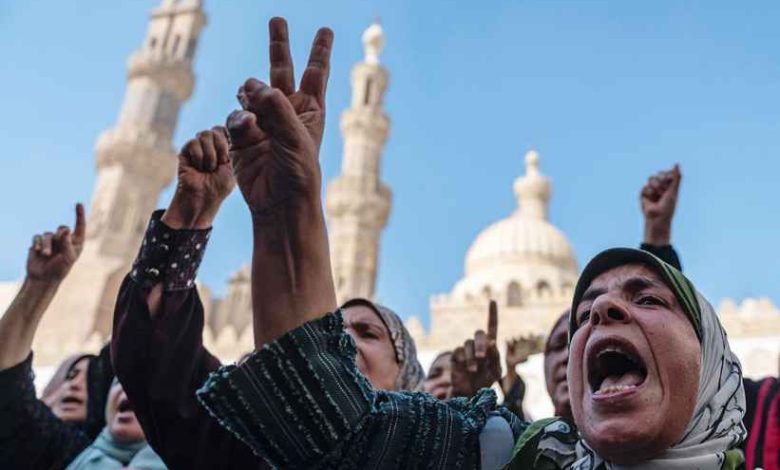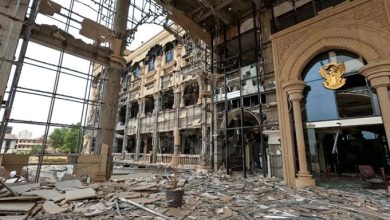A Religious Revolution is Under Way in the Middle East (1-2)
Can it Survive the Gaza War?

Agencies – Sudan Events
Old stereotypes are haunting the Middle East once more. The biggest butchery of Israeli civilians since the state’s creation, carried out on October 7th, has been followed by a slaughter of Palestinian civilians. America, which has funded, armed and defended Israel is again an object of ire. So are its Western allies. Together they are blamed for facilitating Gaza’s pummeling and the displacement of its people. A truce which began on November 24th, and which was set to expire as The Economist went to press, had led to the release of 81 hostages and 180 Palestinian detainees as of November 28th.
The violence has punctured recent efforts to improve relations in the region. The standard-bearers of Islam—Sunni Saudi Arabia and Shia Iran—had started to bridge their sectarian division. As well as accepting each other, Muslim states were beginning to accept the Jewish one, too. Since 2020 four Arab states had joined the Abraham accords, normalizing their interactions with Israel. More, including Saudi Arabia, were poised to follow.
Now the war in Gaza is radicalizing and horrifying the Muslim world. The Palestinians have global attention fixed on their plight after years of neglect. Hamas may claim that as a success of sorts. But many blame the Islamist terrorist group for bringing down Israel’s hellfire.
The fallout shows that Muslims stand at a critical juncture in the evolution of their faith. Huge religious, political and social transformations are changing the Middle East and its 400m people. The question is whether Hamas’s attack reverses this revolution by stoking Islamism’s embers. Anti-Israeli and anti-Western fervor could agitate its grassroots anew.
To understand why such an outcome would be so harmful, consider how much Muslim attitudes to religion had shifted in the years leading up to the attacks of October 7th. Religious practice has changed from a political mobilization for communal salvation, as espoused by Islamists, to a more personal quest for spirituality. The upshot is that for many Muslims Islam has become increasingly depoliticized.
This trend is clear in Iran. Since the revolution in 1979, It has been led by a Shia cleric. It calls itself an Islamic republic and officially, 99.5% of its 89m people are Muslim. But in 2021 an online poll by Gamaan, a Dutch research group, claimed that about half of its 50,000 Iranian respondents said they had lost or changed their religion. Fewer than a third identified as Shia, the ruling Muslim sect. And despite the country’s ban on proselytizing, interest in the country’s non-Muslim faiths, like the Zoroastrian and Baha’i ones, is soaring. Evangelicals in Iran say that Christianity is growing faster there than in any other country. Iran is “the first post-Islamic society”, believes Shahriyar Ahy, a pundit from the country.
Across the Muslim world clerics, once untouchable, have been lampooned for greed and hypocrisy in recent years. Tax breaks, land allocations and gay sex tapes in countries including Iran, Iraq and Pakistan have provoked outrage. Some theologians have tried to adapt, either out of conviction or in an effort to remain relevant. In Morocco Abderrahmane Taha, arguably the most influential philosopher in the Muslim world, synthesized humanism with Islam’s ethical code.
Institutions formerly in lockstep with Islam, such as the Saudi royal family, have loosened up. The kingdom’s crown prince and de facto ruler, Muhammad bin Salman (mbs), ditched his family’s 250-year alliance with followers of Ibn Abd al-Wahhab, an 18th-century zealot. He also had himself proclaimed a mujaddid, or renewer of the faith, in 2018. In a survey conducted last year by James Zogby, an American pollster, over two-thirds of the Middle East’s young adults said they wanted religious institutions to “modernize”.
Now the war in Gaza is radicalizing and horrifying the Muslim world. The Palestinians have global attention fixed on their plight after years of neglect.



